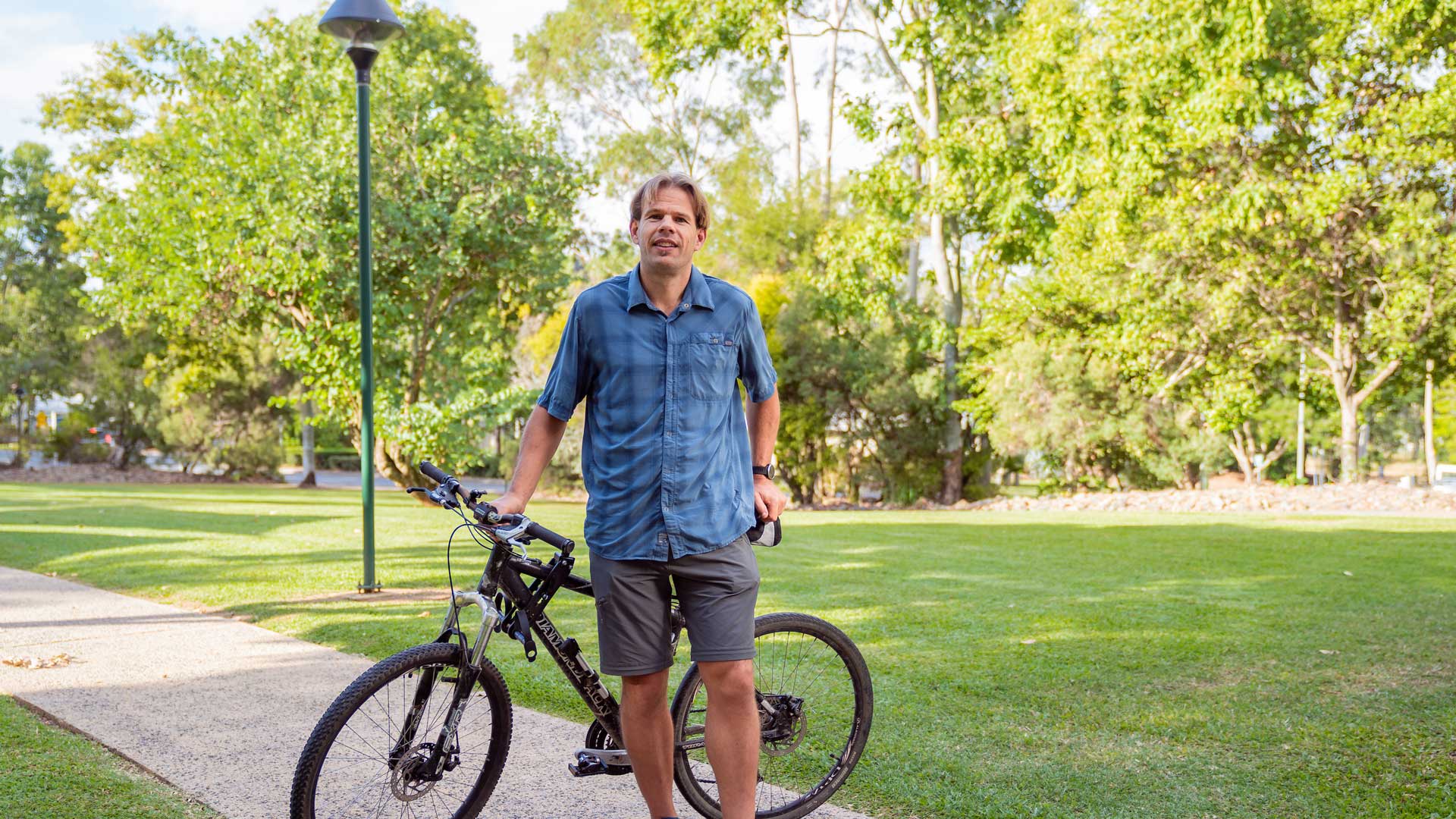
Q&A with Professor Corneel Vandelanotte
Professor Corneel Vandelanotte is a Vanguard Grant recipient based at Central Queensland University. He leads the 10,000 Steps program and the Physical Activity Research Group at the University. His research focuses on preventative health strategies that benefit the wider population and take advantage of modern technologies. His current research is exploring the potential of chat-bots to deliver personalised physical activity interventions.
What are you currently researching?
Physical activity lowers your risk of heart disease. Despite this, less than half of Australians are meeting physical activity recommendations. This means that cost-effective, population-based strategies to increase physical activity are needed. Increasing physical activity on a large scale is difficult, but machine learning (ML) - the process in which computers can learn and improve through experience - offers a new approach to achieve this.
Chat-bots are computer programs that are designed to mimic human conversation. ML-based chatbots can not only process natural language, but also learn from trial and error and use real-time data from devices such as activity trackers or GPS. These functions allow ML-based chatbots to act as virtual coaches and could provide highly personalised physical activity counselling. Our early evidence suggests chatbot interventions are practical and effective, however further research is needed to develop ML-based physical activity chatbots that can be applied in everyday settings. Therefore, this study will develop and evaluate a new physical activity chatbot.
What difference will your research make to people’s cardiovascular health in Australia?
Increasing physical activity is one of the key Heart Foundation action areas, as described in their National Strategic Action Plan for heart disease and stroke and Blueprint for an Active Australia. However, most Australians are not meeting the physical activity guidelines. Therefore, we need new and effective population-based physical activity interventions.
The use of machine learning, practically applied in the form of a chatbot (a virtual coach) that can be web-, app-, messenger- and/or smart speaker-based, allows for the development of applications with unmatched levels of personalisation that can be achieved in real-time. Advanced ML-chatbots use language and learning processes, in combination with real-time data from a range of sources, to provide timely advice.
If our research is successful, we will have a new state-of-the-art tool, that is low in cost and that can be shared with and used by large numbers of people. This will support them to be active and live a lifestyle that protects heart health and prevents the development of heart disease.
What motivated you to do your research?
I'm motivated to make a difference, and my research can do this. The huge value of regular physical activity is underestimated and could be better supported. The impact of heart disease and other chronic illnesses could be reduced if physical activity levels increased. In urban environments that have limited space for exercise and movement, it can be difficult for people to include physical activity as part of their daily routine. There are also often extra costs associated with using specialised exercise facilities or when joining a sporting group. Therefore, we need to come up with clever ways that can empower people to be active in the environment that is available to them, without adding to the cost of living.
Of course, I am practicing what I preach! It’s fun to be active and it makes me feel great both physically and mentally. I want to help others to enjoy these same benefits.
Are there any achievements or discoveries from the past year you can share with us?
Our previous work has shown that using tracking devices that synchronise movement data with an app (such as a Fitbit) are more effective in getting people moving than those that don’t. We have also seen that chatbots that are delivered via social media apps are able to significantly increase people’s physical activity. In fact, chatbots have been shown to effectively improve several things which protect cardiovascular health, including increasing physical activity, fruit and vegetable intake and sleep duration. We are using the findings from this work to make sure that our newly developed ML-based chatbot can have the biggest impact on people’s physical activity.
What role has Heart Foundation funding had in your career journey?
Heart Foundation funding allows me to do awesome and innovative research that would otherwise not be possible. It allows me to make new discoveries, publish results in high quality, peer reviewed scientific journals and helps people to live more active lives and prevent heart disease. It also supports my career in research and will enable me to secure future funding so I can continue my journey as a researcher.
Do you have a message for Heart Foundation supporters?
I'm very excited and grateful to have been awarded a Vanguard Grant by the Heart Foundation. It is such a privilege to secure one of these very competitive grants, and I am thankful to the Heart Foundation for offering the opportunity and for their commitment to heart disease research. I still can't believe my application also won the 2021 Ross Hohnen Innovation award, that is well beyond anything I expected.
Last updated09 January 2026